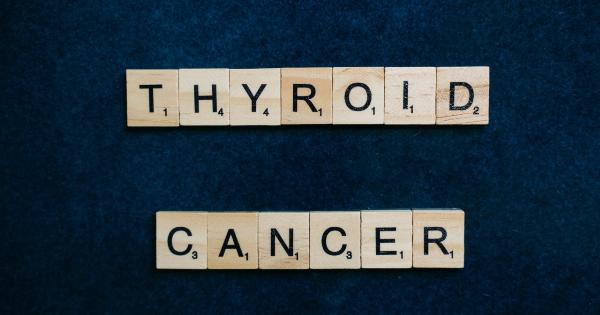Anxiety is a prevalent mental health condition that affects millions of people worldwide.
While there are various factors that contribute to anxiety, including genetics, environment, and life experiences, researchers have also identified a link between hormones and anxiety. Hormones play a crucial role in our overall well-being, and any imbalances can have a significant impact on our mental health.
In this article, we will take a deep dive into the way hormones affect anxiety, exploring the different hormones involved and their mechanisms.
1. Cortisol: The Stress Hormone
Cortisol, often referred to as the “stress hormone,” is produced by the adrenal glands in response to stress and anxiety.
In short-term stressful situations, cortisol helps the body by increasing focus and awareness while suppressing non-essential functions like digestion and immunity. However, chronic stress can lead to prolonged periods of elevated cortisol levels, which can contribute to anxiety disorders.
2. Adrenaline: The Fight-or-Flight Hormone
Adrenaline, also known as epinephrine, is another hormone produced by the adrenal glands. This hormone is released during moments of intense stress or fear, preparing the body to either fight or flee from a perceived threat.
While adrenaline is necessary for survival, prolonged activation due to chronic anxiety can lead to increased feelings of restlessness, irritability, and even panic attacks.
3. Thyroid Hormones: Metabolism Regulators
The thyroid gland plays a vital role in regulating metabolism through the production of thyroid hormones, namely T3 (triiodothyronine) and T4 (thyroxine).
Imbalances in thyroid function, such as hypothyroidism or hyperthyroidism, can affect neurotransmitter levels in the brain, leading to symptoms of anxiety and depression.
4. Estrogen and Progesterone: Female Hormones
Estrogen and progesterone are the primary female reproductive hormones, fluctuating throughout the menstrual cycle. These hormones interact with neurotransmitters in the brain, including serotonin and dopamine, which are linked to mood regulation.
As hormone levels fluctuate, particularly during premenstrual syndrome (PMS) or perimenopause, women may experience heightened anxiety symptoms.
5. Testosterone: Male Hormone
Testosterone is the primary male hormone, but it is also present, albeit in lower levels, in females. Studies have shown a correlation between testosterone levels and anxiety.
Low testosterone levels in men are associated with increased anxiety symptoms, while high testosterone levels in women can also lead to anxiety disorders.
6. Insulin: Blood Sugar Regulator
Insulin is a hormone produced by the pancreas, responsible for regulating blood sugar levels. While its primary role is in metabolism, insulin also affects mood and behavior.
Imbalances in insulin production or insulin resistance can lead to symptoms of anxiety and even contribute to the development of anxiety disorders.
7. Oxytocin: The Love Hormone
Oxytocin is often referred to as the “love hormone” due to its role in social bonding and attachment. It is released during intimate moments, such as childbirth, breastfeeding, and sexual activity.
Oxytocin helps reduce anxiety by promoting feelings of calm and trust. Lack of oxytocin or impaired oxytocin receptors may contribute to increased anxiety levels.
8. Melatonin: The Sleep Regulator
Melatonin is a hormone released by the pineal gland, primarily responsible for regulating the sleep-wake cycle. Sleep disturbances and insomnia are common symptoms of anxiety disorders.
Anxiety can disrupt the natural production of melatonin, leading to difficulties in falling asleep or maintaining restful sleep, which, in turn, exacerbates anxiety symptoms.
9. Serotonin and GABA: Neurotransmitters in Anxiety
Serotonin and gamma-aminobutyric acid (GABA) are neurotransmitters that play a crucial role in regulating mood and anxiety levels. Imbalances in these neurotransmitters can contribute to the development of anxiety disorders.
Serotonin helps regulate mood, while GABA acts as a calming agent, inhibiting excessive neuronal activity. Low levels of serotonin and GABA have been associated with anxiety disorders.
10. Prolactin: The Lactation Hormone
Prolactin is a hormone primarily responsible for lactation in women and plays a role in various physiological processes. Recent evidence suggests that prolactin may also influence mood and anxiety.
High levels of prolactin have been linked to increased anxiety symptoms, particularly in women during the postpartum period.
In conclusion, hormones play a significant role in the manifestation and regulation of anxiety. From cortisol and adrenaline to estrogen and melatonin, imbalances in these hormones can contribute to the development or exacerbation of anxiety disorders.
It is essential to recognize the hormonal factors that influence anxiety to develop more targeted and effective treatment approaches.



























